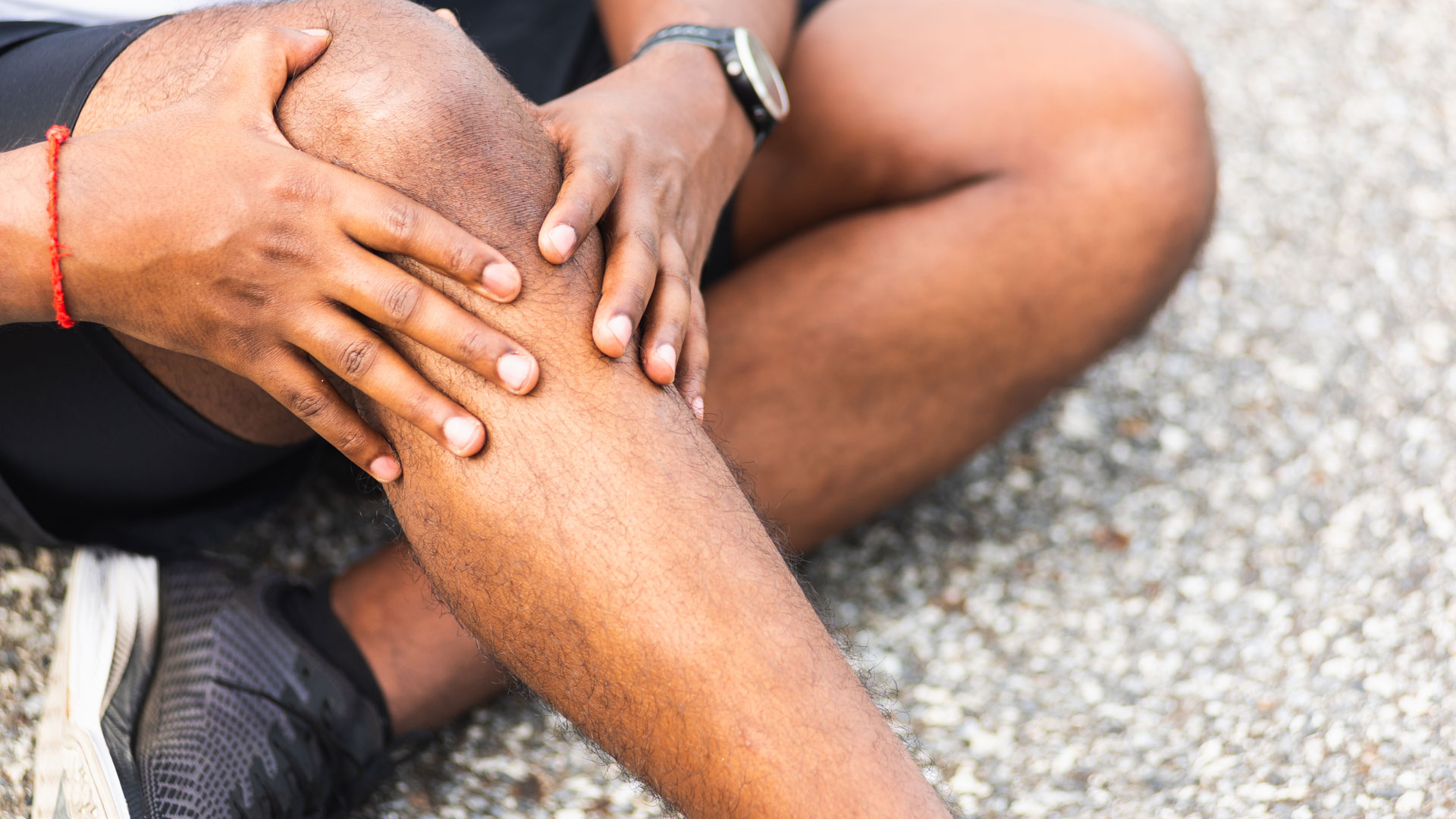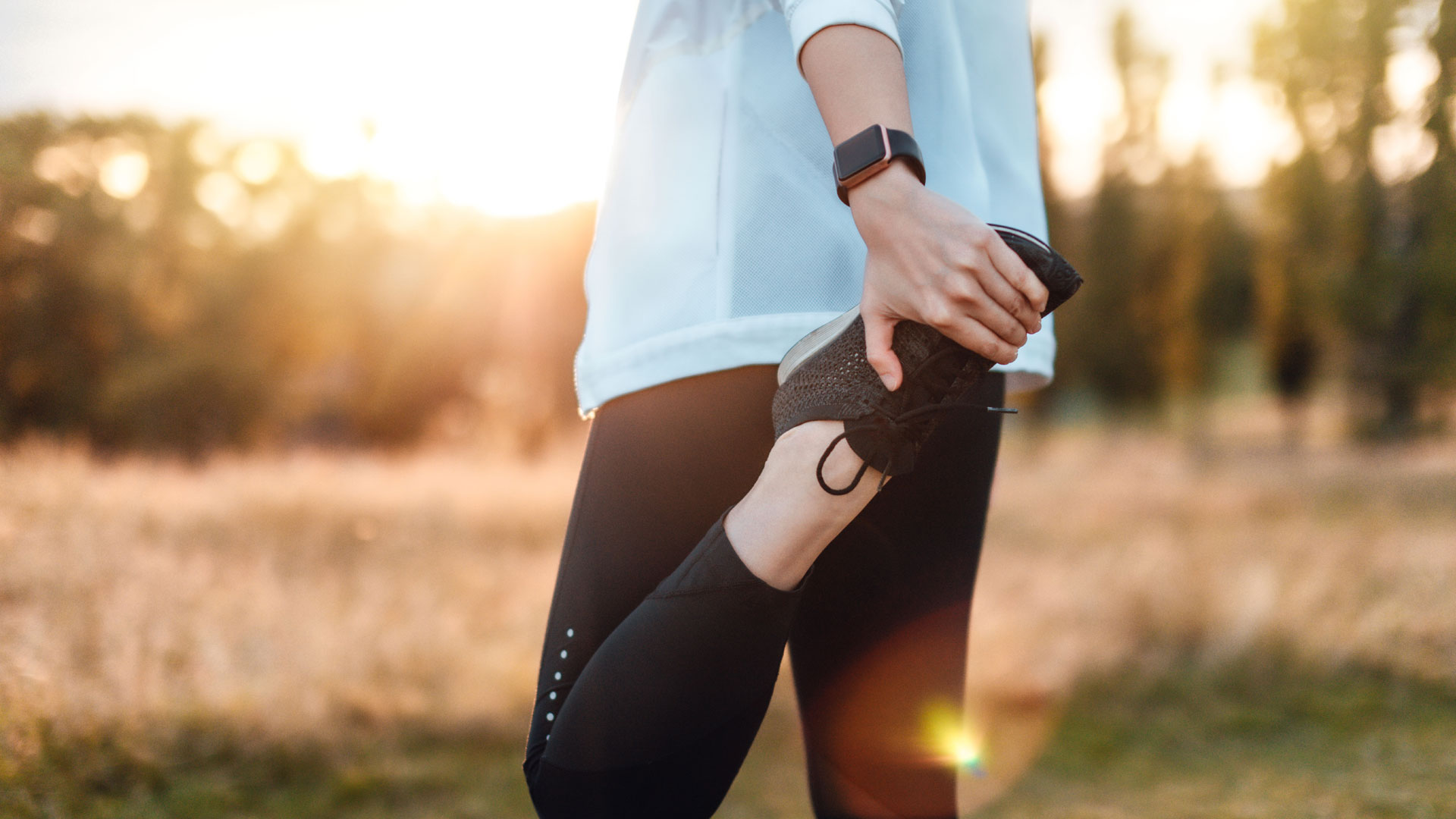Is running bad for your knees?
We asked a personal trainer; is running bad for your knees? Here are their top tips for protecting your joints


Start your week with achievable workout ideas, health tips and wellbeing advice in your inbox.
You are now subscribed
Your newsletter sign-up was successful
Is running bad for your knees? Much has been said about the long-lasting benefits running can bring. This high-impact form of exercise is a great form of cardiovascular fitness that not only benefits your body, but it has proven positives for your mind too.
According to one study, running can boost your self-esteem, reduce stress and ease depression and anxiety. And, as confirmed in one peer-reviewed report, running even just five to 10 minutes a day can reduce the risk of death and cardiovascular disease.
Plus, you don’t need to have a gym membership to add running to your exercise regime. All you need is some sportswear and a pair of the best running shoes for women or the best running shoes for men to help protect your joints and you’re good to go. It’s that simple.
But whether you choose to pound the sidewalk or take to the treadmill, what impact can this high impact exercise have on your knees? To help us find out: is running bad for your knees, we dug up the latest research and spoke to fitness experts to get their take on it.
Can running damage your knees?
According to Tana von Zitzewitz, master trainer at Barry’s UK, not necessarily.
She says: “Running is only bad for your knees if you run continuously with incorrect form or inappropriate footwear. Overuse causes injuries to your knees, not running.”
And Ryan Hodgson, Health and Lifestyle Coach from Hodgson Health, agrees.
Start your week with achievable workout ideas, health tips and wellbeing advice in your inbox.
Hodgson tells us: “I don't think it’s accurate to say running is bad for your knees as a stand-alone comment, more so that running can be bad for your knees.
“The problem often lies in poor form when running and or lack of strength work too plus those who are overweight too have that to factor in. If you’re going to start running, I’d always suggest building the distance up slowly.
“If you can invest in yourself to get your gait (how your foot lands as you run) assessed it will aid your running technique. When warming up I’d also ensure doing some glute activation work as many runners with underdeveloped glutes often pick up knee injuries which perhaps could be avoided.”

What does running do to the body?
Running is one of the most beneficial forms of exercise you can do. We say this because of the wide and varied benefits it has for your mind and body.
A 2020 review regarding running and mental health concluded: “Running has important positive implications for mental health, particularly depression and anxiety disorders.”
And along with helping with weight management, reducing the risk of cardiovascular disease and improving your balance, The Centers for Disease Control and Prevention states that physical activity, like running, at a moderately-intense level can slow the loss of bone density that occurs naturally over time as we age.
But don’t just take our word for it. Personal trainer Lucy Arnold, from Lucy Locket Loves, says: “Running has been shown to strengthen muscles and bones which, in turn, supports the joints, making you less likely to get injured.”
What are the most common running injuries?
Running has continued to be one of the most popular forms of exercise. In fact, more than 40 million Americans run on a regular basis. However, as our experts have stated, running can be bad for your knees if you aren’t taking care of your running form and doing everything you can to protect your knees.
According to a 2015 review, more than 80% of running injuries are caused by repetitive strain with the knees, feet and legs highlighted as the most common areas runners incur injury. But why is this?
Zitzewitz says: “We can get caught in the trap of running far too much too soon. This can result in shin splints or other injuries related to overuse.
“It’s best to leave at least a day or two to recover in between each run. Another easy mistake is pushing too hard on every run or sprinting in every run session. At least 80% of our runs should be easy. Plan which run session you are going to attack and try to pull back on the others. This will allow for a more diverse training schedule and you will see the benefits.”

How can you protect your knees from injury?
From investing in the best running shoes for men or women to adopting a good running technique. Rebecca Myers, qualified personal trainer and founder of Live Happy runs through some quick fixes to avoid injury to your knees:
1. Warm up and stretch
Myers says: “Whatever ability level you are as a runner, it is vital that you stretch and warm up your muscles and joints before you start your run. It’s particularly important in the winter months as your muscles and synovial fluid in your joints (which help to lubricate) need more warming up.”
2. Consider the running surface
“It will make a difference to your knee joints in particular as to the surface you are running on,” Myers tells us. “There is a marked difference between treadmill running in the gym, flat road running and cross country running with multiple terrains to deal with.
“Although a lot of runners I know and work with do prefer running outside in the fresh air, it is less stress on your joints when you are running on a modern treadmill. They are designed to take some impact out of your joints and provide a smooth, easier running experience.”
3. Start slow
“I would always suggest building up your running time or distance as well,” Myers says. “It is often the case that if you haven’t run for a while and just leap into a longer distance straight away, your muscles are very likely to react negatively to this sudden change and the risk of injury is higher.
“Start slower and shorter in distance and build up - if you have been used to running in the past, it won’t take long to get to where you were before.”
Becks is a freelance journalist and writer with more than 7 years of experience in the field. She writes health and lifestyle content for a range of titles including Live Science, Top Ten Reviews, Tom’s Guide, Stylist, The Independent, and more. She also ghostwrites for a number of Physiotherapists and Osteopaths.
Health has been a big part of Becks’ lifestyle since time began. When she’s not writing about the topic of health, she’s in the gym learning new compound exercises. And when she’s not in the gym, she’s most probably reading.
